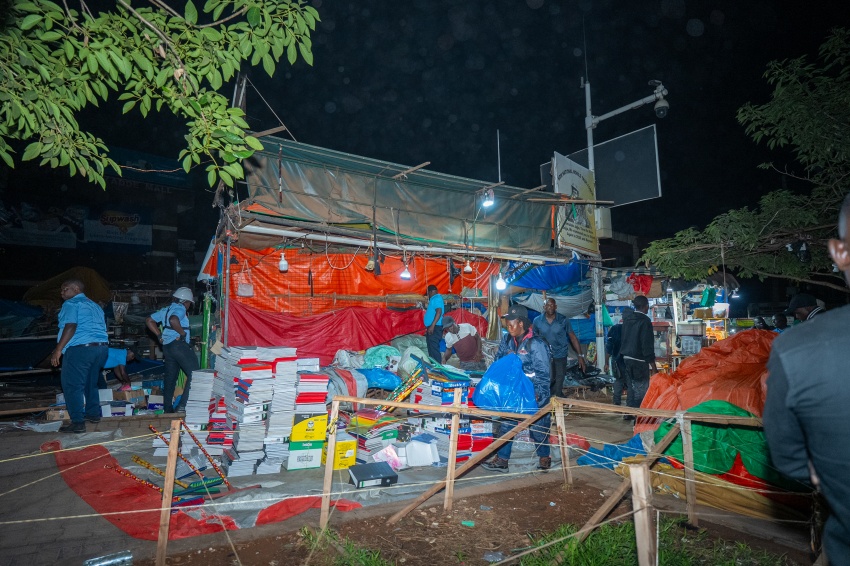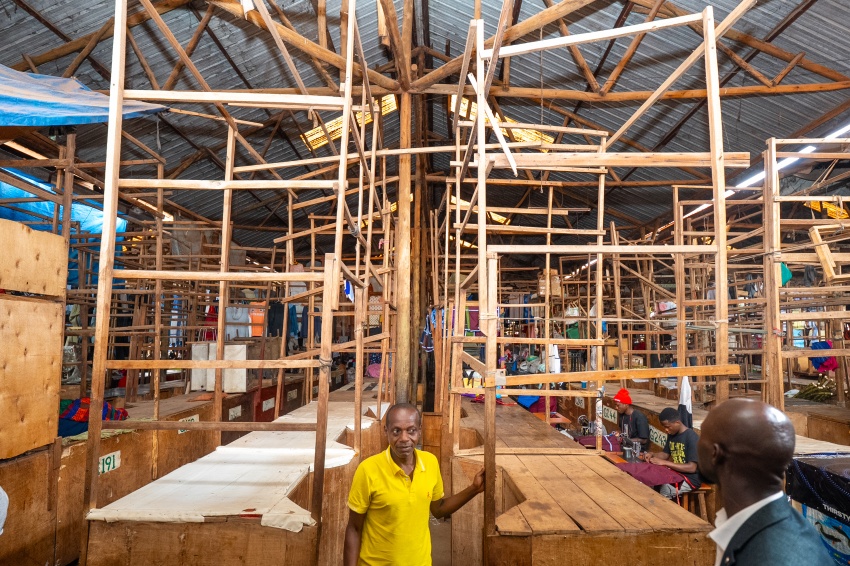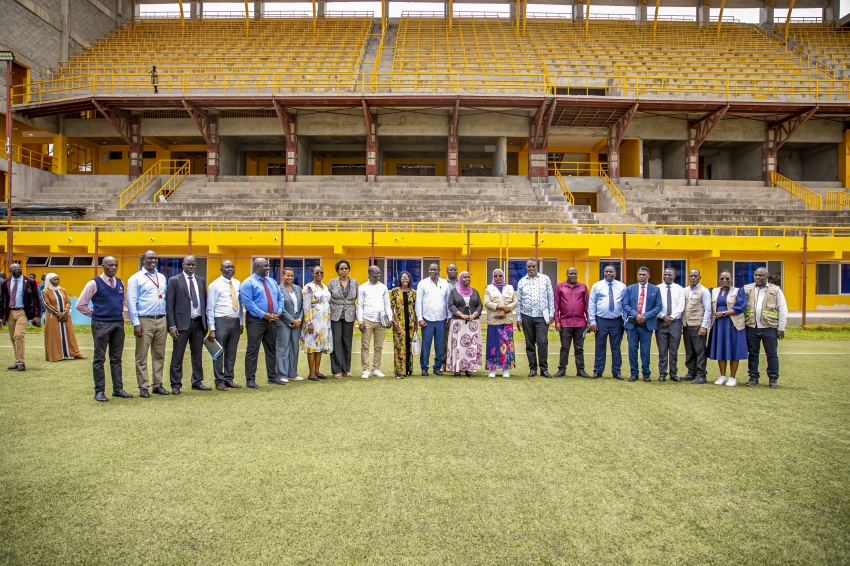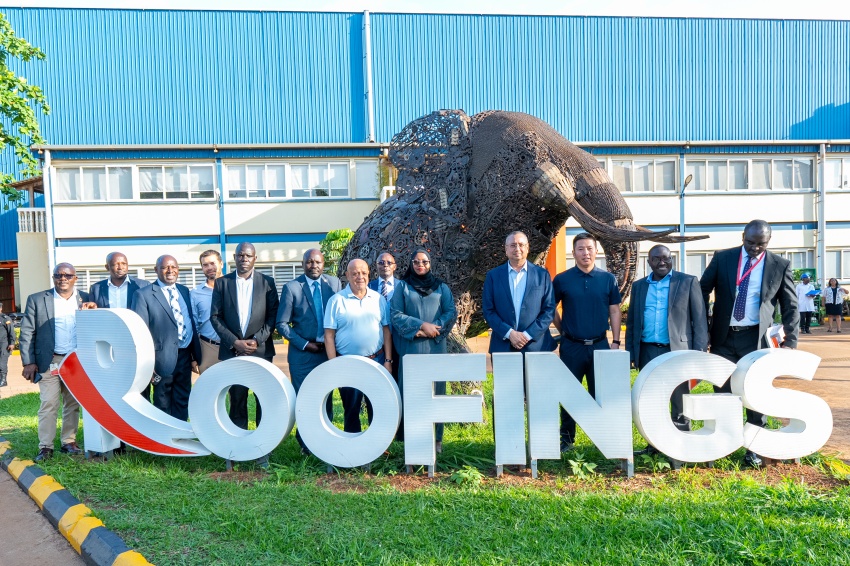WITH VENDORS RELOCATED, KCCA EMBARKS ON CLEAN AND GREEN STREETS CAMPAIGN
PUBLISHED — 28th, February 2026
Rain fell steadily over Kampala’s central business district on Saturday morning, but it did little to slow down dozens of residents armed with brooms, spades and seedlings.
Under grey skies, city officials, traders and volunteers moved from one arcade to another, sweeping littered walkways, clearing clogged corners and replanting grass where only bare soil and debris had remained.
At the center of it all was the Kampala Capital City Authority (KCCA), Executive Director, Sharifah Buzeki.
“We rallied everyone to come and join us to clean the city, especially downtown,” Buzeki said, pausing along a freshly cleared walkway. “The space we have as walkways is enough for us to walk. Let us preserve the green.”
The campaign, organized by KCCA, comes weeks after the relocation of street vendors to designated trading areas. For years, sections of downtown had been congested, with pedestrian corridors overtaken and green patches trampled underfoot.
Now, attention has shifted to restoration.
At Printers Miracle Center, Mirembe Arcade, Electric Plaza and Freedom House, volunteers swept accumulated waste into piles before trucks hauled it away. Along Nkrumah Road, Sirk Street and Luwum Street, business owners stepped out to join the effort, to scrub storefronts and clear drainage channels.
In Nasser Lane, KCCA workers uncovered an illegal dumpsite hidden behind buildings a pocket of rotting waste that officials said had fueled persistent littering in the area. By midday, it had been cleared.
“There was a lot of littering,” one shop attendant admitted. “But today, everyone feels involved.”
While garbage collection was immediate and visible, the deeper message of the day was about greening.
On reclaimed walkways along the Non-Motorised Corridor, where vegetation had been destroyed, fresh grass was planted in neat strips. Young trees were placed into carefully dug holes, their roots pressed into damp soil softened by the rain.
Buzeki said greening the city is embedded in KCCA’s budget and long-term urban plans, describing restored green areas as essential to public health, climate resilience and the overall dignity of the capital.
“Restoring once-destroyed green areas is not cosmetic,” she said. “It improves our environment and the quality of life in the city.”
Deputy Executive Director Benon Kigenyi joined volunteers on his knees to plant grass along a pedestrian corridor, urging residents to guard the new growth.
“Protect this grass and keep it green,” he said. “It belongs to all of us.”
Byendaimire, the Director of Physical Planning, said functional pedestrian spaces are central to orderly urban design.
“When walkways are clear and green buffers are preserved, the city works better,” he said, pointing to the newly opened corridors.
Dr. Sarah Zalwango, Director of Public Health and Environment, emphasized garbage sorting and proper waste disposal as critical to sustaining the day’s gains.
“If we do not manage waste properly, we reverse the progress,” she said, urging traders to use designated bins and avoid illegal dumping.
Corporate partners, including Nabugabo Updeal Joint Venture, joined the exercise, alongside youth volunteers and community members. Miss Uganda Trivia Elle Muhoza also participated in planting trees, encouraging young people to take pride in their capital.
For many participants, the rain became symbolic, washing away the past while nourishing new growth.
As the exercise wound down, patches of green grass lined sections of downtown that had long been dusty and congested. The transformation was modest but visible.
By Geofrey Mutegeki Araali
Communication and Media Relations Officer
News & Announcements
28th, February 2026
27th, February 2026
26th, February 2026
25th, February 2026
19th, February 2026
17th, February 2026
15th, February 2026
13th, February 2026
12th, February 2026
11th, February 2026


















Development partners